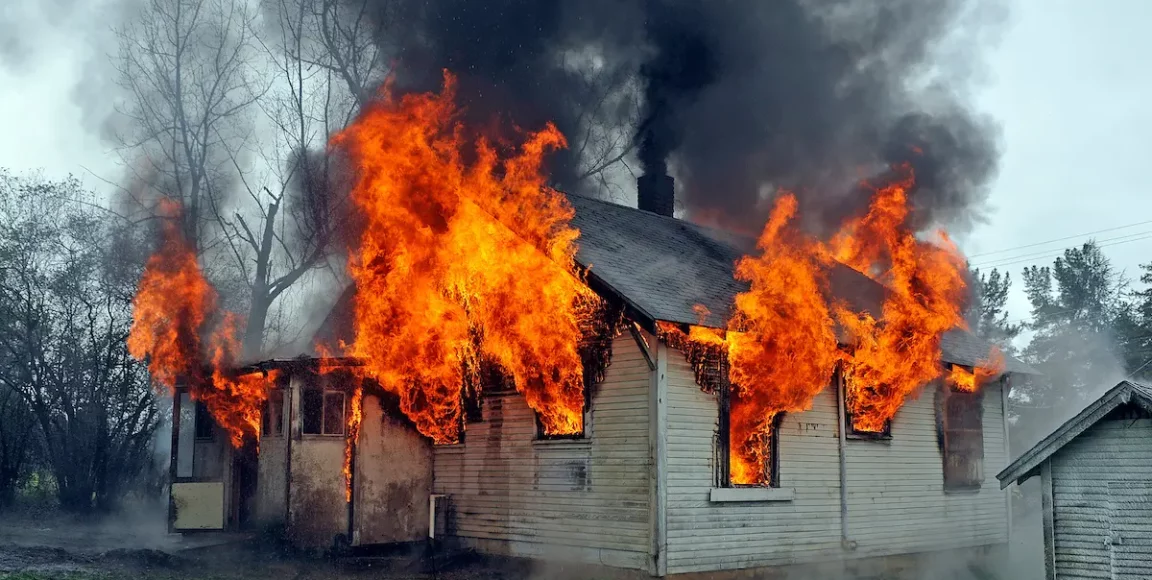Experiencing a house fire is a devastating and traumatic event that can turn your life upside down.
In just a matter of minutes, everything you’ve worked hard for could disappear in flames. However, the aftermath of a house fire requires immediate action. This is to ensure your safety and mitigate further damage.
This blog post will guide you through the crucial steps to take after experiencing such an unfortunate incident. Whether it’s finding temporary shelter or notifying creditors and utility companies, we’ve got you covered!
Ensure Your Safety
Even if the damage seems minimal, you should never enter your home without clearance from the authorities. The intensity of a blaze can weaken structures that may collapse at any moment.
If you’re in doubt about the integrity of your residence, it’s best to avoid entering altogether until professionals deem it safe. Once cleared for entry, always wear protective equipment such as:
- gloves
- masks
- sturdy footwear
This is because ashes and debris can cause harm. Remember to be careful when inspecting the damages. Smoke inhalation could lead to respiratory problems or worse conditions like lung cancer.
In case you experience symptoms like coughing or difficulty breathing due to exposure during or after the fire event, seek medical attention right away.
Contact Your Insurance Company
This step is crucial as it can help accelerate the recovery process. It can ease some of the financial burdens that come with such an event. When contacting your insurance company, be sure to provide them with all the necessary information about the incident. This includes details about:
- when and where the fire occurred
- what was damaged or lost in the fire
- any injuries sustained
Your insurance provider will likely send an adjuster to assess the damage. They will determine coverage for home repairs or replacements. It’s important to cooperate fully during this process. Make sure to provide any documentation requested by your insurer.
If you have temporary living expenses coverage on your policy, your insurance may also cover costs associated with finding a place to stay while repairs are made to your home.
Keep in mind that every policy is different. That is why it’s important to review yours carefully if you’re unsure about what types of damages are covered under it. You may also want to ask questions about deductibles or other out-of-pocket expenses related to filing a claim.
Find a Temporary Place to Stay
Understandably, you may feel overwhelmed and unsure of where to turn. But there are resources available to assist you during this difficult time.
Reach out to family and friends who live nearby. They may be able to offer you a spare room or couch for a few nights until you figure out your next steps. If that’s not an option, consider contacting local disaster relief organizations or government agencies for assistance.
Finding temporary housing can take time but don’t rush into something without careful consideration. Take advantage of all the resources available. Dot this before making any decisions on where to stay as it will ultimately affect how quickly and effectively you’ll be able to move forward from this traumatic event.
Secure Your Property
It’s important to secure your home as soon as possible to prevent any additional losses. Board up broken windows and doors with plywood or other materials to keep out:
- animals
- weather elements
- intruders
Consider installing a temporary fence around the perimeter of your property. This is if it has been damaged in any way that would make it easy for people or animals to enter uninvited. Additionally, set up motion-activated lights around your home and driveway. This is for added security during nighttime hours when visibility is poor.
You should also notify local authorities about the fire. In that way they can monitor activity in the area and check on your property periodically while you’re away from home.
Begin the Cleanup Process
It’s important to start the fire cleanup process as soon as possible. This is to prevent further damage and restore your home to its pre-fire condition. The first step is to assess the extent of the damage.
Determine what items are salvageable and what needs to be disposed of. It’s recommended that you hire a fire damage restoration service crew who have experience in handling fire damage cleanup.
During the cleanup process, it’s important to wear protective gear such as gloves and a mask due to potential hazards like smoke residue or mold growth. The team will use specialized equipment like:
- air scrubbers
- dehumidifiers
- ozone generators
These are useful to remove any remaining odors or pollutants from your home. They will also thoroughly clean all surfaces including:
- walls
- floors
- ceilings
- furniture
- appliances
They will be using special chemicals designed for fire restoration. Once cleaned up there might still be some repairs needed before moving back in again. This could include anything from replacing drywall or carpeting damaged by water used during firefighting efforts.
Document the Damage
This step is important because it will help you determine the extent of the loss and assist with filing a claim with your insurance company. Start by taking photos and videos of every room in your home, making sure to capture both close-up shots and wide angles. Be thorough in your documentation, as this will be essential for proving what was damaged or destroyed in the fire.
It’s also helpful to create a written list of all damaged items, including their value if possible. Keep any receipts or other proof of purchase for those items that were lost.
If you have any questions about how to document damages properly after a house fire, don’t hesitate to reach out to your insurance company or an experienced public adjuster. They can guide you through the process and ensure that nothing is missed during this critical step.
Know What to Do After a House Fire
Overall, after a house fire, it is important to document, mitigate the damage, and rebuild. Contacting and working with a reliable fire damage restoration company can help provide much-needed support, guidance, and resources throughout the entire process.
Don’t wait – contact the experts today to start the road to recovery!
Explore our blog for more reads.



